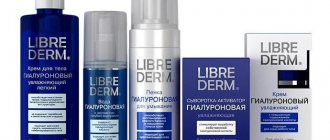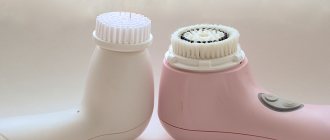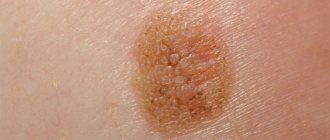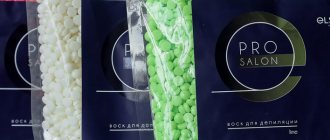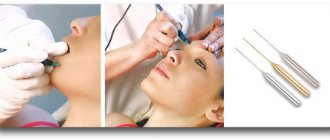For any person obsessed with their skin, maintaining a good skin care routine is nothing less than a passion. Cleansing your face is one of the first steps in skin care and includes washing your face with water. Part of your daily routine may include asking, “Should I wash my face with cold or hot water?”
No matter what skin type you have, it's easy to find a variety of products that are perfect for cleansing your face. But do you know whether it is good to wash your face with cold or hot water? In fact, the water you wash your face with can affect your skin just as much as the products you put on it.
Since each skin type is different, you may experience different reactions to certain water temperatures. Well, in this article you can find out whether you should wash your face with hot or cold water. Continue reading!
Is it possible to wash your face with cold water?
It is always better to use cold or warm water while washing your face. There is a lot of anecdotal evidence pointing to the benefits of washing your face with cold water, but there is limited research to prove if it has a significant impact.
While the pH level of the water is also important, you also need to check the temperature of the water you use to wash your face. Extreme water temperatures can have some adverse effects on the skin, such as drying or redness, and this makes regular use of such water harmful.
Now it's time for you to understand the benefits of washing your face with cold water. Keep scrolling.
Benefits of washing your face with cold water
There are many benefits of washing your face with cold water. Most of these benefits apply to the surface level of the skin you wash with cold water, but the effect may differ from one skin type to another. If it does not lead to any problem on your skin, you can check how well you can tolerate the use of cold water on your skin.
Tightens pores
Some anecdotal evidence suggests that washing your face with cold water can shrink pores. It's worth trying to see if cold water can minimize the appearance of large open pores on your skin.
Reduces morning puffiness
Washing your face with cold water can feel good when you have a puffy face, especially around the cheeks. Cold water can help constrict blood flow under the skin.
Adds hydration
Washing your face with cold water can help retain essential moisture and hydration while reducing transepidermal water loss.
Reduces sebum production
Washing your face with cold water can help treat excessively oily or acne-prone skin by combating excess sebum production.
Reduces swelling and inflammation
Washing your face with cold water is said to be very beneficial for those who suffer from acne, as it can reduce the amount of swelling and inflammation, especially around areas that are susceptible to acne. However, there is no scientific evidence to support the same.
Prevents the formation of wrinkles
Washing your face with hot water is potentially linked to the formation of wrinkles. Therefore, it is better to use cool water for washing.
Now that you know the benefits of washing your face with cold water, let's talk about the ideal water temperature for your skin.
How to quench your thirst
Any water is suitable to maintain water balance. If you are unsure about the purity of your tap water or the purity of your spring water, drink store-bought water.
“The first thing you should pay attention to when purchasing is the integrity of the packaging and the expiration date of the water. If we are talking about the packaging of natural drinking water, its label must indicate information about the place of water intake, explains Lyudmila Khomich, vice-president for quality of the Union of Juice, Water and Beverage Producers. – Packaged water on the Russian market is produced according to all quality and safety requirements, which include about 90 parameters. These are salt and gas composition, taste and smell indicators, content of toxic metals and toxic non-metallic elements, halogens, organic pollutants, incl. pesticides, microbiological and radiation safety indicators.”
How to prepare structured healthy water for drinking and washing at home, see here .
What temperature of water should you use to wash your face?
It is believed that water at room temperature or below is ideal for washing. It's best to avoid extreme temperatures - either too hot or too cold - as this can damage your skin.
Washing your face with hot water can lead to dry, aging skin and the production of excess skin oils as your skin tries to compensate for the repeated removal of its natural oils. Very hot water (above 107°F) can also cause premature aging over time. However, there is no scientific evidence to support the same.
It's important to consider how often you wash your face during the day if you want to keep it healthy. Let's discuss this in the next section.
How often should you wash your face?
Washing your face with water at least twice a day is a generally accepted norm, but you can wash your face only once. Rinsing with water alone may not be enough to get rid of dirt and product residue on your skin. To effectively cleanse your face, you may need to use some form of cleanser that can dissolve the dirt and oils that have accumulated there.
However, using too much cleanser on your skin or washing it too often can strip it of its natural oils, leading to dryness. Therefore, to balance things out, it is best to combine the use of water with a cleanser that is suitable for your specific skin type. Sometimes washing may become necessary, for example after heavy sweating.
Now let's talk about the potential downsides of using cold water on your face.
Cleansing depending on the time of day
The approach to washing your face directly depends on when the procedure is carried out - in the morning or in the evening. In addition, the set of products used for cleansing is also different.
Washing your face in the morning step by step
Even though your face does not get dirty during sleep, you should not neglect washing your face in the morning. This procedure helps remove remnants of night cream and sebum produced by the sebaceous glands.
How to wash your face in the morning:
- Apply any foaming cosmetic product - soap (preferably for children), mousse, foam or gel.
- Remove the product with running water. You can use a toner to wipe your face with a cotton pad.
You can also do morning facial cleansing with micellar water, which you simply apply to a cotton pad and wipe it with it. It is important to rinse it off with plain water after this, since the product contains surfactants that, remaining on the skin for a long time, negatively affect it.
Cleansing before bed
Cleansing in the evening is a more complex procedure, since you first need to thoroughly remove the macchia and only then wash your face. Since regular washing with foam and gel does not work well with cosmetics, especially waterproof ones, you will need different products for high-quality cleansing.
To remove makeup, cosmetologists recommend using fat-based products. These include:
- oil balms;
- hydrophilic or regular oil;
- cosmetic sour cream or cream;
- cosmetic milk
You can also use non-greasy products to remove makeup, but the results may be unsatisfactory. These include:
- melting gel;
- micellar water.
After decorative cosmetics are removed, the second stage of evening cleansing is carried out:
- Wash with any foaming detergent.
- Wipe your face with a cotton pad on which tonic has previously been applied.
The quality of the procedure is indicated by the absence of even the slightest remnants of cosmetics on the disc. Otherwise, the evening cleansing procedure must be carried out again from the beginning.
In the case of decorative cosmetics, then evening face washing is carried out according to the same algorithm as the morning one. In this case, it is not advisable to use makeup removers.
Are there any disadvantages to washing your face with cold water?
- Washing your skin with cold water can potentially be disadvantageous in several ways:
- When you apply cold water to your face, your skin's pores may shrink in size. If these pores are clogged with bacteria and dirt before this process, washing your face with cold water can limit the path they can take to escape. As a result, they can remain trapped inside the skin and lead to acne.
- Cold water may not be able to dissolve the oils on your face as effectively as warm water. This can lead to clogged pores and an increased incidence of acne.
- For some people, cold water on the face can cause a sudden change in the appearance of the skin, making it redder or drier.
Here are some cons of using cold water to wash your face. However, if you're looking forward to using it anyway, here's a quick tip to avoid some of these drawbacks. You can use warm water to cleanse your face and then splash cold water on it. However, this is not a scientifically correct way to wash your face. You can just try it and see if it works for you.
The next section discusses some general tips for keeping your face clean.
Fixing the material
Now, to consolidate the material, let’s try to consider several specific life situations.
Situation #1 - Normal morning
In the morning you got up, went to shave and brush your teeth. Your whole face is smeared with toothpaste and shaving foam.
- Wash with plain water
- We wash ourselves with drinking water
- Dry your face with a towel
Situation #2 - Ordinary evening
You took a shower and washed your hair.
- After a shower, wash your face with drinking water
- Dry your face with a towel
Situation #3 – Gym or Sauna
You probably came to the gym with a bottle of drinking water to drink during your workout. After you finish your workout, you go to the shower and:
- Wash your face with drinking water from a bottle
- Dry your face with a towel
I train close to home, so it’s easier for me to come home and wash my face with drinking water at home.
Situation #4 – Hot summer day
You return home, sweaty and lathered, and:
- Wash off sweat from your face with drinking water
- Dry your face with a towel
Tips for keeping your face clean
If you want to keep your skin healthy, here are some tips you can follow:
- Avoid using very hot or very cold water.
- Carry out regular skin care procedures, cleansing, toning and moisturizing it.
- Always use gentle cleansers specifically formulated for your skin type.
- It is best not to use soap on your face because it can harm your skin's pH levels.
- While facial scrubs are essential for exfoliating the outer layers of the skin, overusing them can irritate the skin and even damage the skin barrier. So, limit their use.
- Avoid over-cleansing your face as this can lead to redness, dryness and irritation.
Can my skin become patchy if I wash my face with cold water?
If your skin is really sensitive, it may react negatively to very hot or very cold water. It is better to use water at room temperature to avoid this situation.
Anecdotal evidence suggests that cold water may be better for washing your face. If the water is scalding hot, it can cause many adverse effects on the skin. You should wash your face twice a day and after sweating heavily to prevent clogged pores. Also, maintain a daily skin care routine to keep your skin healthy.
Reviews
Cold water comes in different temperatures. If it is close to room value or slightly lower, only a beneficial effect occurs. This is evidenced by the reviews of most people who use the method for daily washing.
When people begin washing their faces with extreme cold water or ice, they do not initially experience any adverse effects. To a lesser extent, oily shine is formed, the skin is tightened. But vascular spasm gradually appears, so areas of sagging and wrinkles form.
Numerous reviews about the use of hot water are only negative. It becomes easier for people to wash their face in the morning and they do not experience discomfort. But gradually the quality of the face deteriorates.
The best reviews can be seen about using a contrast shower and washing . The positive effect appears after 7-10 days. Most people notice increased elasticity and a healthy glow.
